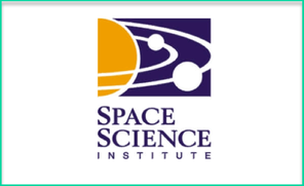
The eclipse project was conceived by three astronomers, Andrew Fraknoi (Foothill College, Los Altos Hills, California), Dennis Schatz (Pacific Science Center, Seattle, WA), and Douglas Duncan (University of Colorado, Boulder, Colorado.) Together they brought the idea to Paul Dusenbery, Director of the Space Science Institute’s National Center for Interactive Learning (NCIL), located in Boulder, Colorado. NCIL manages the STAR Library Network (STAR Net) (supported by NASA, NSF, and other organizations) to help libraries with STEM programming. Information about its library eclipse program is available at: www.starnetlibraries.org/2017eclipse/. There you can see a final distribution map of participating libraries. “This was a great opportunity for libraries and their communities to work together to participate in a celestial event of this scope,” says Project Director Paul Dusenbery. “Many organizations like NASA, NSF, and the American Astronomical Society helped people understand the science of eclipses and to view them safely, and we were delighted to be part of this important educational effort.”
Libraries played a vital role in the success of this nationwide event. According to the American Library Association, it was the largest single science event that libraries have ever participated in.
CNN recently projected that about half the country watched some portion of the eclipse. This equates to roughly 150 million people. By comparison, the final game of the NBA championships had a viewership around 20 million people and the 2017 Super Bowl had 111 million. “The solar eclipse was truly the Super Bowl of Science” says Paul Dusenbery.
Participating libraries were projected to have conducted around 35,000 science programs before and during the eclipse, reaching an estimated 1,750,000 people.
NASA played an important role in providing essential information about the eclipse as well as streaming the event live for several locations along the path of totality. NASA’s solar eclipse coverage was one of the biggest internet events in recent history and by far the biggest online event NASA has ever measured. More than 40 million views of their live broadcast on nasa.gov and multiple social platforms were recorded. This tops recent Super Bowl live streaming numbers and is in the realm of major news, sports and entertainment events. STAR Net’s NASA@ My Library initiative is a NASA partner.
Many science partners were involved as well. Astronomers, astronomy hobbyists (e.g. Night Sky Network - http://nightsky.jpl.nasa.gov), Solar System Ambassadors (http://solarsystem.nasa.gov/ssa), museum educators, park rangers, and science teachers partnered with libraries in their own communities, helping to put on eclipse outreach events. Recent data from NASA’s Solar System Ambassador (SSA) program shows that through the end of August, SSAs had logged 394 programs at libraries that served 55,000 participants. This was a dramatic increase from 2016.
Hundreds of thank-you letters have been received and photos of events are being posted to the STAR Net flickr account (https://www.flickr.com/photos/142267026@N07/). Menomin Hawpetoss, Information and Training Specialist, Menominee County Library, said “We had one of the biggest events our Library has ever seen. So, in my language, we say Waewaenen (Thank You)!” “Many libraries had a response similar to this from a library in Michigan: ‘This event and your help attracted people who had never come to the library before, but more importantly, they got library cards, they checked out books, and they CAME BACK. This helped them see us for what we’ve become, not what we were when they were children.”
SPACE SCIENCE INSTITUTE
The Space Science Institute (SSI) is a nonprofit, public benefit research and education 501(c)(3) corporation founded in 1992 with a vision to expand humankind's understanding and appreciation of planet Earth, our Solar System, and the universe beyond. SSI's mission is to (a) enable scientists to make new discoveries, (b) increase science and technology literacy for people of all ages and backgrounds, and (c) inspire youth to pursue science-technology education and career opportunities. It is headquartered in Boulder, Colorado, with locations distributed across the U.S. and internationally.
SSI scientists work on many prestigious space missions, including but not limited to the Mars Exploration Rovers, Rosetta, Cassini, Mars and Lunar Reconnaissance Orbiters, Mars Science Lander, Juno, ExoMars, OSIRIS-REx, and Mars 2020. Areas of research also include heliophysics, observational astronomy (with such facilities as Hubble Space Telescope, SOFIA), and exoplanets (Kepler). SSI's National Center for Interactive Learning (NCIL) fosters collaboration between scientists and educators to create nationally touring exhibits for museums and libraries, provide professional development and webinar training for science educators, and build popular digital games and apps with over a million hits.












